

On a crisp December night, four years ago, Anna von Hausswolff sat in a church in Nantes, alone among rows of empty wooden chairs, as shouts from outside echoed round the nave. The people were angry, and at her? Frightened, she had to wonder how on earth she’d been dragged into this mess. How, on an otherwise normal Tuesday, a group of right-wing Catholic fundamentalists had turned out in their dozens to barricade fans from her show, so riled up by her presence that they wanted her silenced.
There had been warning signs the previous day. Complaints had forced the relocation of the show from the Church of Saint-Clément to Notre-Dame du Bon-Port, a half-hour walk away, but that may have only stoked the fire. Blog posts on fundamentalist websites called for people to rally against the softly spoken Swede, calling her a deviant, a black mass ceremonialist, a satanist even, and her songs were proof. Just look at “Pills” from her 2010 debut, they frothed. Making love to the devil couldn’t possibly be metaphor. Lyrics are gospel. Why read between the lines? “I was very shocked by that,” she says, thinking back to the whole deranged ordeal. “Hearing all the screaming and people banging on the doors, it felt like such a violent place to be.”
She was eventually ushered out the back door wearing a hoodie and driven away in a car with blacked-out windows by two guards called in for backup, but the craziness didn’t end there. Her show in Paris was cancelled, and police protection added for the tour stops in Brussels and Den Haag.
Get the Best Fit take on the week in music direct to your inbox every Friday
Looking back now, von Hausswolff remembers sitting in Nantes and gazing up at the paintings of Biblical women that decorate the church’s four pillars – Bathsheba, Eve, and the Jewish prophets Abigail and Esther – and feeling the warmth of their care. “I looked at those women and thought, ‘Okay, they all did something to upset society but they had strong beliefs too, and they had a hope that was rooted in love,’ and I know in my heart that I am driven by love too,” she says.
“I can understand the fear of losing your sacred space to something that you feel doesn’t necessarily align with it, and I would have liked to explain to them why I was there, what my intention was, and that I have a lot of love and respect for that space. But I felt their anger, and I felt the sort of belief that makes you see the world in black and white. There is no room for conversation anymore.”
Not wanting to feed on the headlines or provoke her new haters, she kept her thoughts largely private, just between friends, determined to put it behind her. But, speaking to Rasmus Stolberg of Efterklang backstage on the final tour stop in Copenhagen, a different seed was planted. “I remember he looked at me and said, ‘I think this is going to follow you for the rest of your life. It’s something that will change you to the core,’ and I was like, ‘Oh, thanks,’” she says, pulling a face. “I tried to understand what he meant, because I thought I could just let it go. But then I realised he was right and that I could maybe keep it with me, to let it help me understand who I am and what I believe in.”

The events in Nantes may not have been the main catalyst for ICONOCLASTS, her bold new album released this week, but there’s certainly a throughline and it’s not hard to see. In a break from von Hausswolff’s own tradition, ICONOCLASTS wears its central themes close to its turbulent surface rather than letting them linger in the depths. “A lot of these songs are about love, in various ways, but I wanted the album to feel like a battle cry,” she says, clenching a fist in her lap. “It felt urgent to me to express a sense of wanting things to change and actually taking steps towards that change. It’s so easy to say what you believe but then not really live by those beliefs or follow those rules. For me, I know I have my morals and my ethics, but I don’t always act by them.”
In a way, it's a continuation of a lifetime’s effort to try and unlearn the habit of people pleasing, which she says is still a constant struggle – but it’s bigger than that, too. ICONOCLASTS is a call for greater agency on every level: passivity is out and breaking free of structures and bonds that no longer serve us is very much in. On “Facing Atlas”, a song about the perils of committing too fully to one viewpoint or side, she invokes the hapless Greek Titan condemned to forever hold up the sky as a symbol of what not to become. “The foolish hope of great eternal beauty,” she sings, as if taunting herself. “This shit breaks my heart.” She’s sorry, too, on eco-banger “Stardust”, which sings of a life “vaporised into the sky” and vehemently howls “it’s time to make mistakes” – or time at least to care enough to try.
“I’m not an activist. I’m not a politician. I’m a musician, an artist, and I think that art should be allowed to not always play by the rules of what’s correct and what’s not correct,” she says, so long as it comes from a place of considered intention. At an hour and a quarter long, von Hausswolff’s sixth album is a lot to digest but not a moment of it goes to waste. Even when “The Iconoclast” screams its way into a void part-way through its 11-minute runtime, those few beats of silence carry just as much weight and speak just as loudly.
Tucked away in the corner of a plush hotel lobby in Gothenburg, in between running errands for her mum, she confides that ours is the first interview she’s done for the album and that she’s still figuring out how to talk about it, in some ways, which is always a good reason to start right at the beginning. Growing up on the fringes of the avant-garde art world in which her dad, Carl Michael, thrived as a composer, visual artist, and performer, von Hausswolff has always been drawn to misfits and rebels. As a young girl, her biggest idol was Lisa ‘Left Eye’ Lopes of TLC, who famously torched her boyfriend’s million-dollar mansion by piling his expensive trainers in the bath and setting it on fire. “I identified with her,” she says, laughing. “She was like my queen, my goddess.” She even tried to rap like Lopes, forming a trio called CTZ with her sister Maria and their friend Isabel, inventing their own nicknames. “My sister was Chris, Isabel was Tezz, and I was Zuoo,” she explains. “Truly we were obsessed.”
The girls’ love of hip hop extended to headier stuff like Wu-Tang Clan and Cypress Hill, but that was more about dancing than trying to mimic their flow. When it came to vocals, besides TLC of course, it was artists like Whitney Houston, Toni Braxton, and Paula Abdul that they looked up to, singing along until they grew hoarse. “I think those women were the first teachers I had in terms of learning how to stretch the voice and to bend a note,” she says. “They were flawless, always in pitch, and at the time, as a kid, that was the goal.”
Not anymore. These days, von Hausswolff has made peace with the fact that she’s sometimes a little pitchy when she sings. After all, it’s seldom through perfection that our real truths our told, but through the heat and charge of the moment. Few people know that better than ‘godfather of punk’ Iggy Pop, who lends his bombed-out vibrato to pop ballad “The Whole Woman”, ICONOCLASTS’ most outwardly straightforward love song. “He felt like a dad to me,” she says, remembering their first meeting years ago. “He had an energy about him that felt like family.” And while the song was originally written as a conversation between lovers, von Hausswolff sees it now as something much more open. Still a love song, but not necessarily a romantic love. Perhaps a conversation between two sides of the same person, even. There’s an almost ritualistic feel to it, as if calling on the power of the sea to wash away the pettiness of life and find new common ground.
This idea of rising above the daily circus of bullshit is one she returns to a few times throughout our conversation, and it all comes back to hip hop, specifically Kendrick Lamar. “I feel like he’s one of those artists who’s so good at not dwelling in the darkness but rising above it, putting a spotlight on problems and openly encouraging change,” she explains, crediting the rapper for inspiring her to want to be a bigger, grander version of herself, and to stand her ground in the process. “He might actually have been the most important artist for ICONOCLASTS, even if you can’t hear it in the music.”
At a stretch you could argue that ICONOCLASTS is von Hausswolff’s own Mr. Morale & The Big Steppers in that it questions everything and expands her self-expression, examining the cultural landscape while owning up to her own flaws. Like Mr. Morale, it also took five years to come through – her last album, the solemn, wordless All Thoughts Fly, dropped in September 2020 – but the lengthy gestation was, at least partly, a deliberate choice. Used to making records on tight schedules, with ICONOCLASTS she chose to take her time and be more thorough with the details, sometimes stepping away from the work completely as other writing and composing projects – for film, and later for theatre – came along and took up space.

The result is a record that’s inextricable from the context and unsteady conditions in which it was created. And not just musically; von Hausswolff’s split with her long-term partner factors in here, as does the accelerating collapse of Western society, even in supposedly idyllic and socialist Sweden. “We’ve always had a proud tradition of having a democracy and politics that’s grounded in human rights and the basic idea of treating people decently,” she says of the nation’s self-image. “But I think we have completely lost that as of now and it makes me very frustrated. I’m not sure how to deal with it, so I make music.”
Writing for film and theatre, she says, has given her a deeper appreciation for music as a storytelling device in and of itself, capable of generating a sense of action, a sense of space, and the full range of emotions without so much as a word or a hum. You don’t have to be an auteur to know that a sad scene with a bright and optimistic needle drop creates a tension, but there has to be a point to it. “You need to know why there’s tension, and I think keeping that in mind has helped me with this album,” says von Hausswolff. “It’s helped me to think a bit more linearly, in a way, and more carefully about how I glue things together. Not to be so punk-ish about it, but also trying not to be so analytical that you lose your intuition.”
No matter the medium that’s always where it starts, with good old fashioned gut feeling. There have been bumps along the way, though. On her first scoring job, for the Swedish documentary The Most Beautiful Boy in the World, she confesses to having been overexcited. “I wanted to show the world how good I was at writing film music and was sort of showing off, but I soon realised that it wasn’t the way to go,” she says, explaining how the “epic soundtrack” she’d dreamt up first was completely unsuited to a film about child stars and mental health. “I needed to look at the film and see it for what it actually was and then write some music that resonated in a good way.”
More than four years later, von Hausswolff says she still doesn’t really see herself as a film composer, even after scoring three more productions, including two films by French director Alice Winocour (Revoir Paris and Couture), and, most recently, Lucía Aleñar Iglesias’ award-winning Catalan drama Forastera. “It’s an extremely challenging thing to do,” she says. “It’s a delicate balance of using the ego and letting it go, which is a good psychological experiment for someone who is used to working mainly with herself. But I love it, and it feels good to be a tool for someone else. A director will tell you what their vision for the music is and you need to make that happen.”
A pivotal moment came in 2022 when asked to write the music for a Swedish adaptation of The Lower Depths, a 120-year-old piece by Russian playwright Maxim Gorky. Under the direction of Hungarian exile János Szász, the play zeroed in on the bleak existence of a group of lost souls and social outcasts who gather in the ruins of a theatre, teasing apart their ambiguous morals with biting, pitch-black humour. Reading the script, von Hausswolff’s first instinct was to “think a little bit bigger about the instrumentation” and, for the first time in her life, she began to write for woodwinds. Working with musician/producer Filip Leyman, who has been by her side for over 15 years now – that’s him playing drums on “Pills” – she recalls the “glorious feeling” of hearing their vision brought to life through the genius playing of saxophonist Otis Sansjö, whose fingerprints are all over ICONOCLASTS too.
“His way of playing has been extremely important for the sound of the album,” she says. “I learned how to write for woodwind, but I wouldn’t have known I could actually do it if it wasn’t for his way of interpreting my notes. They might have sounded very plain if it had been someone else, but he puts so much character and love into it.”

It’s Sansjö that we first hear on ICONOCLASTS, which opens with “The Beast”, built on a theme he originally wrote for The Lower Depths and that von Hausswolff fought hard for including in the play. “I loved the groove of it, and I just wanted to live in that space,” she says. “I could feel what the Beast was through his playing.” So, when the director didn’t want it, she kept it for herself. Later came “Struggle with the Beast”, a thunderous companion piece that carries on the story, drawing from a friend’s real-life ordeal of sudden-onset psychosis.
“It was terrible, but it also made me see new sides of that person,” she says. “It was like the brutal truth was right out there in the open, and we are not used to that in society. When you look at how people behave, everyone is so locked into their characters. So to know that we all have that Beast within us and that it’s just one barrier away I found quite freeing, in a way.”
There’s a dark humour to the song, too, she’s keen to point out. The Beast is not always linked to clinical madness, after all. It’s there in every nonconformist, in everyone who’s slightly unhinged. It was certainly there in Lisa ‘Left Eye’ Lopes. And, von Hausswolff argues, maybe we need to unleash it more often to disrupt the status quo. Like her primal scream in “The Iconoclast”? “That’s very much releasing the Beast,” she says, laughing.
The artwork for ICONOCLASTS and its three singles speak to the same idea, too. Created by Berlin-based visual and performance artist Lotta Antonsson using images of von Hausswolff as a child, they are collaged with seashells that cover her eyes and teeth, suggestive of a mirror-world menace like Coraline’s The Other Mother and her buttoned-over eyes. It’s a storytelling device that Antonsson has been using in her work for years, often using vintage images of models and women clipped from the pages of erotic magazines, and sometimes even record sleeves – her work for ICONOCLASTS puts von Hausswolff in the unlikely cohort of Barbra Streisand, Joan Baez, Diana Ross, and Chaka Khan, whose anonymised and altered LPs have appeared in Antonsson’s various shows over the years.




When it comes to world building and musical horror, few have done it better in recent years than Ethel Cain, who joins von Hausswolff on “Aging Young Women”, ICONOCLASTS’ second luminous ballad, a song about the chances that slip away with time and the angst that comes with their passing. Introduced to Cain’s music by her sister Maria, von Hausswolff says she didn’t fully click with it at first. She wasn’t in the right emotional space to receive it. But then came the breakup, and suddenly everything fell into place. “Once I started really listening it felt very genuine to me and I fell in love,” she says. “Something about Ethel really resonated with me, emotionally, musically, and artistically. Her music felt healing, and the music I was writing was also a way of healing, so I wanted to honour her and have her on this song.”
“I’m always drawn to female artists who use dark aesthetics but aren’t afraid to balance that darkness with a little bit of light, to show both sides. Artists like Chelsea Wolfe, Pharmakon, and Emma Ruth Rundle. I can’t listen to their music all the time because it needs a certain time and space. But, like with Ethel's music, once you find that time and space, it's going to be beautiful.”
She feels the same way about Italian sonic architect Abul Mogard, who features on and co-wrote “An Ocean of Time”, the only song on ICONOCLASTS on which von Hausswolff doesn’t play organ. Built entirely on ambient electronics and down-a-well vocals, it arrives in the aftermath of “Struggle with the Beast”, taking a breath to let all that intensity simmer. “The kind of music Abul makes is quite introverted and takes time to digest but if you can give into it, it’s so rewarding,” she says. “He inspires me to stay true, and I think he’s important, like all of the guests on the album.”
Naturally, she saves her grandest praise for her sister, who sings on ICONOCLASTS’ penultimate track “Unconditional Love”. “Abul, Ethel, and Iggy are all rebels and iconoclasts in the sense that they are gatekeepers of integrity,” she says. “It doesn’t matter what people say or write about them, they go by their own rules and have their own style. But, to me, my sister is the truest punk of them all.”
An award-winning cinematographer, mum of two, and feature film director in the making, Maria has appeared on almost all of Anna’s albums, but never as a featured duet. And as gorgeous as Cain’s harmonies are on “Aging Young Women”, no one does it better than sisters. “Unconditional Love” is the album’s ultimate manifestation of healing, cresting to the heavens on organ, Sandsjö’s sax, and a gorgeous arrangement for strings by Martin Schaub. Then, after such a full meal of voices and sounds, closing instrumental “Rising Legends” brings it all back to Leyman and von Hausswolff alone.
It's a quirk of ICONOCLASTS that the album both starts and ends with unused pieces from other works. “Rising Legends” is a reject from the score to Revoir Paris, but for von Hausswolff it’s a perfect conclusion that honours just how far she and Leyman have come. “I think Filip truly refined his methods of recording the organ for that film, and we recorded the organ for this album in the same way,” she says. “We’ve puzzled all these things out together, so it felt like a natural fit.”




It's quirkier still that the album has already had a second life as Atlas Song, a collaboration with Dutch choreographer/director duo Imre and Marne van Opstal and the contemporary dance company of the Gothenburg Opera. In the interests of correcting the record, as there has been some confusion, Atlas Song was born out of ICONOCLASTS and not the other way around. “All the music was ready before the show, and the whole thing, from the scenography to the dance, was built up from that,” von Hausswolff says firmly. Atlas is a character in just one song on the album and became a more important figure in the play, but the theme of sacrifice runs throughout them both, she explains. “That’s what an iconoclast has to do. Sacrifice themselves for the greater cause, in a way.”
Singing and dancing alongside the pros (who are phenomenal, by the way), she was surprised to discover a completely different side to herself, and one she wants to explore more in the future. “It was such a beautiful, collective way of making art and it’s completely changed my way of thinking about performance,” she says. “I’m not sure I’ll be dancing at my concerts, but you never know!”
Like the Swedish adaptation of The Lower Depths, the scenography for Atlas Song centres on a single set – in this case a room of high-gloss surfaces suggestive of a mirror world, just as Antonsson’s collages are. Who is living and who is, to all intents and purposes, lifeless, the play seems to ask, and does one need the other to exist? “I’ve spent a lot of time thinking about the relationship between an iconoclast and an icon, because those two things are inseparable,” von Hausswolff says. “It’s a thin line between being loved and being hated, and it can so easily just flip around. It’s easy to be an iconoclast because you’re not going to be questioned in the same way that you would be as an icon.”
At least that’s how the story used to go. In the current social climate, sometimes it feels like everyone’s a target. It’s a lesson that Ethel Cain learned the hard way this summer when a calculated smear campaign was launched against her, and I’d argue that von Hausswolff’s own treatment in France was the same thing on a much smaller scale. Again, it comes back to everything becoming so charged, so black and white. “I think people should be careful of being so fucking extreme in their way of acting and thinking and judging people in general,” she says. “We can’t meet any longer in the dialogue, so you just have to make up your own mind about who you are and stand your ground.”
It’s unclear what Maxim Gorky would make of social media pile-ons but there’s a line from The Lower Depths – made famous some 50 years later by Boris the Borzoi in the dog pound scene of Lady & the Tramp – that still rings true of tribalism today. “Miserable being must find more miserable being,” the Russian philosopher dog quotes, “then is happy.” ICONOCLASTS insists that there must be a more agreeable way to live, where we can carve out our own satisfaction and purpose without destructive groupthink trampling on our path. “Oh, I’m breaking up with language,” she cries on “Stardust”, “in search of something better than this.”
ICONOCLASTS is released on 31 October via Year0001

 6 hours ago
2
6 hours ago
2






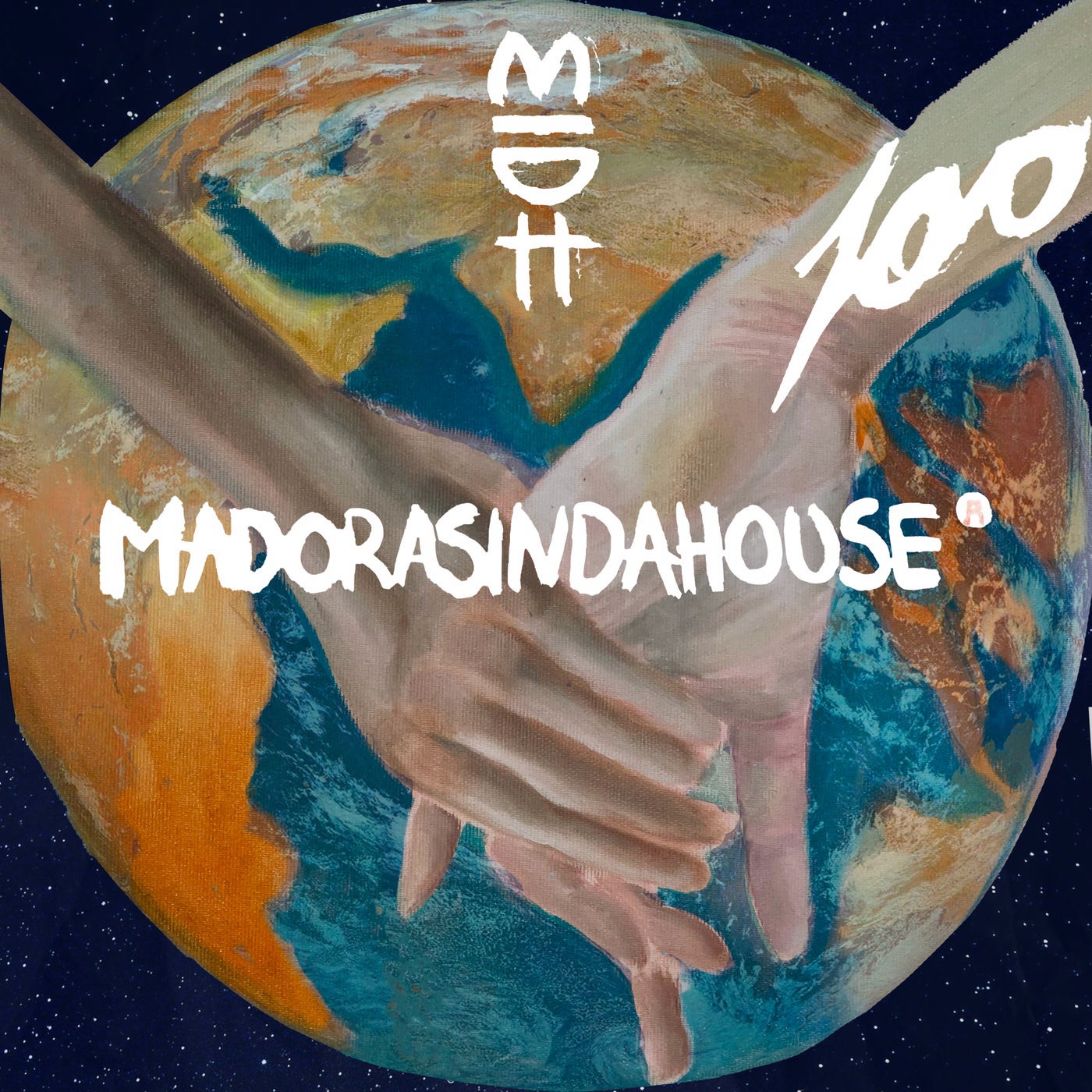
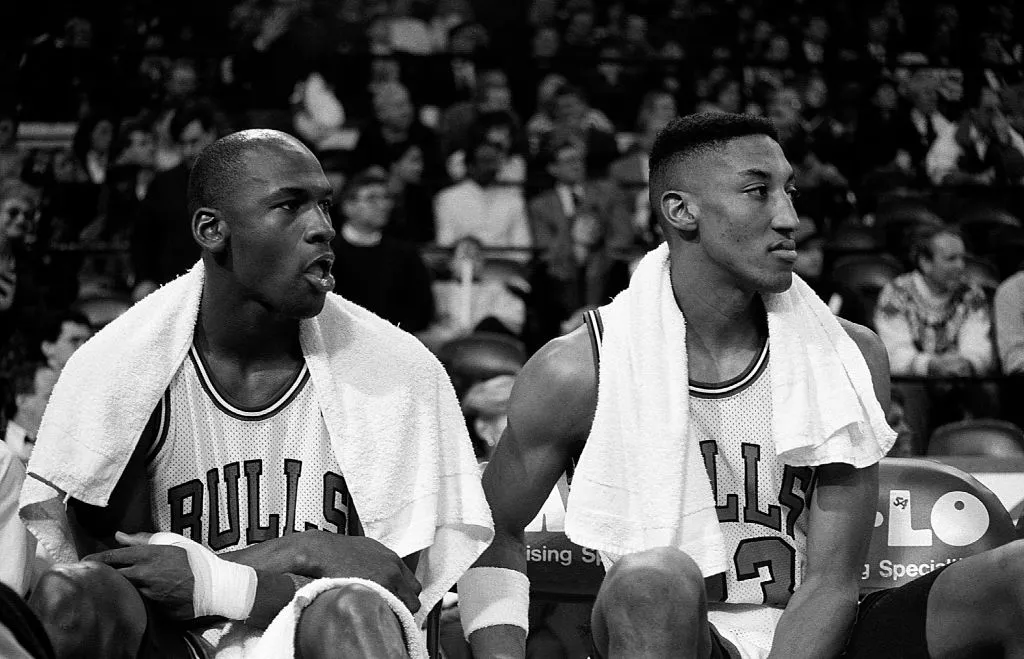

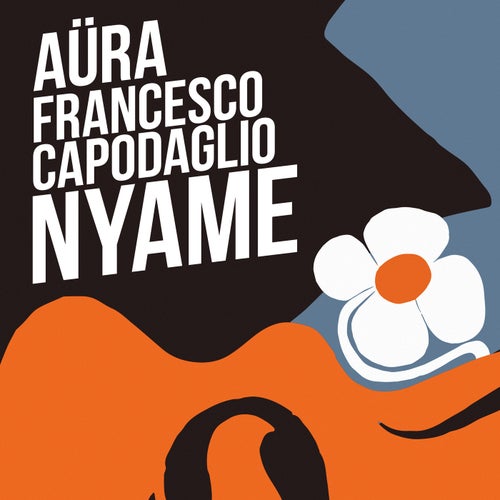


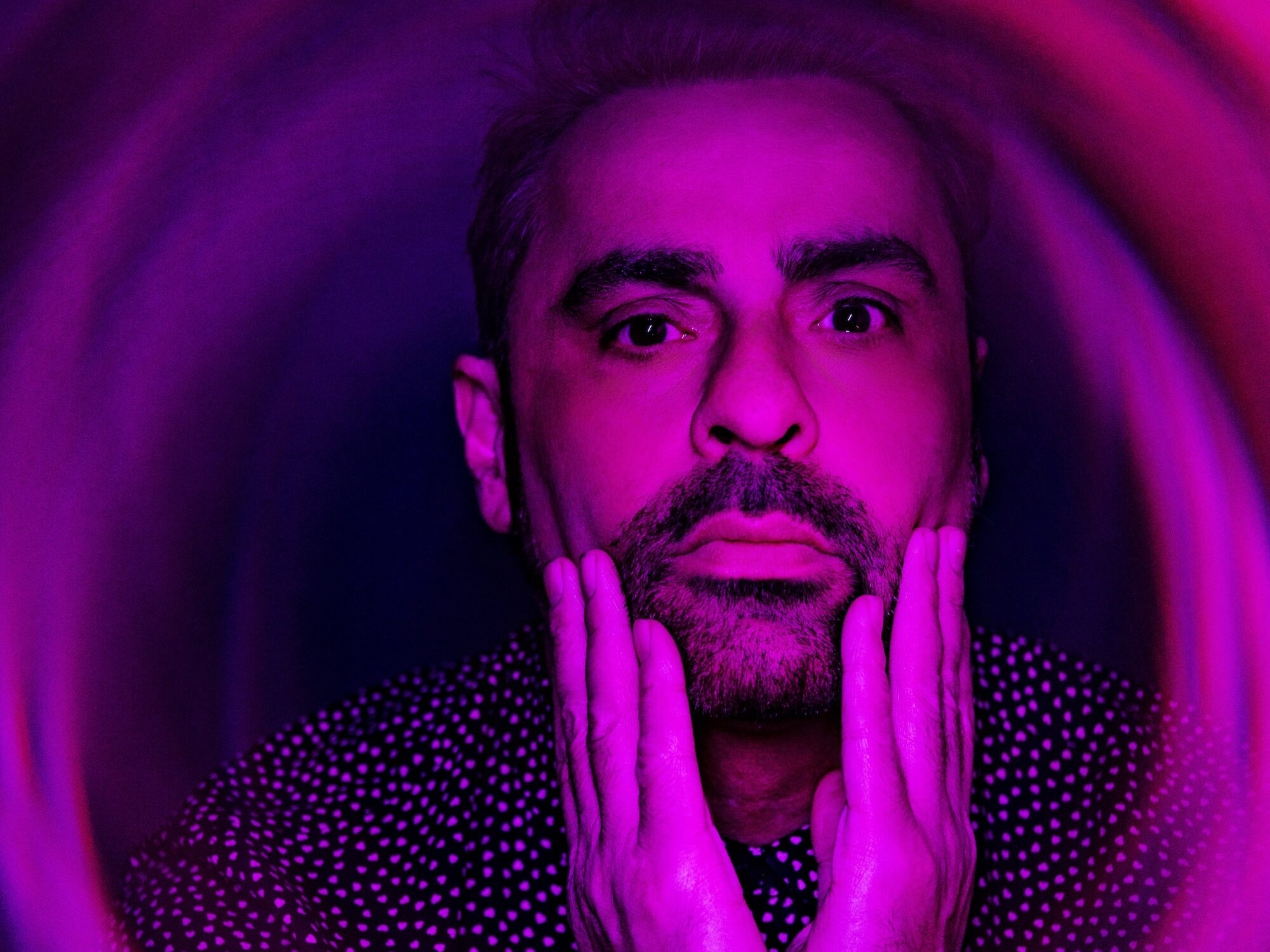


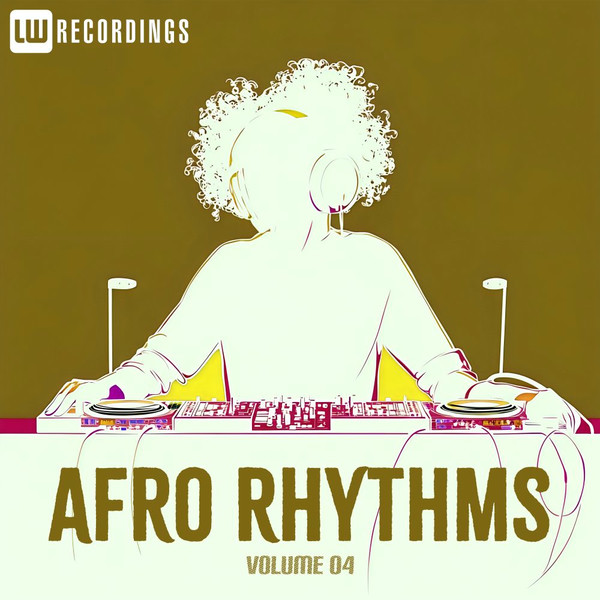


 English (US) ·
English (US) ·